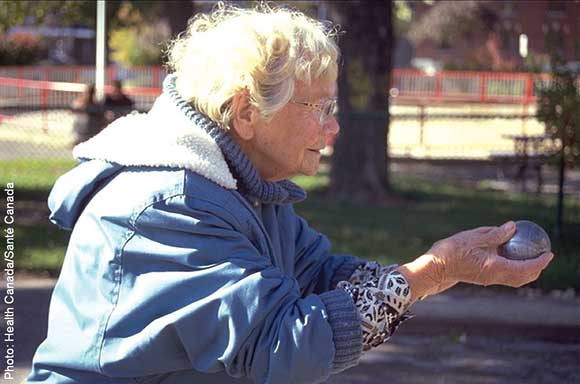Research shows staying active can prevent depression
by Guy Faulkner, PhD & George Mammen PhD (c)
This article is a brief summary of a research paper published on the Alberta Centre for Active Living website in their “Research Update” February 2014, Vol 21, No 1. The article was written by Guy Faulkner, PhD and George Mammen PhD (c).
Depression is a growing mental health problem worldwide. The World Health Organization predicts that by the year 2020, depression will be the second leading cause of disability after ischemic heart disease (heart disease caused by blockage in blood vessels).
The authors reviewed 30 studies on the relationship between physical activity and mental health. Twenty-five of the studies indicated that physical activity prevented the onset of depression. Each study measured the participants’ level of physical activity at the beginning, or baseline, of the study and their risk of depression at follow-up. The more physically active the participants were, the lower their risk.
How active do you need to be to prevent depression?
The Canadian Physical Activity Guidelines recommend 150 minutes of physical activity a week. The research seems to be showing that even less exercise than that can protect against future depression. A study in 2010 reported that people who did things like gardening or walking for 120 minutes a week were at a 63% reduced risk of developing future depression. Other studies found that even less than 20 minutes of activity a day can provide protection.
What kind of physical activity can prevent depression?
This literature review only looked at aerobic physical activity, such as cycling, running, or walking. Other activities, such as weight training or yoga, could also be beneficial, but were not a part of this review.

In a nutshell…
Older adults should try to meet Canada’s recommended guidelines for physical activity: 150 minutes of moderate-to-vigorous intensity aerobic physical activity every week, broken into sessions of 10 minutes or more. There is ample evidence that physical activity—even at low levels—helps prevent depression.
About the Authors
Professor Faulkner is with the Kinesiology and Physical Education at the University of Toronto and Mr. Mammen is a PhD student with the same faculty. Their research focusses on various aspects of physical activity and mental health.
Click Here for print PDF file – Mental-Health-Research-shows-staying-active-can-prevent-depression
Good Mental Health
by Gim Ong, MBA, MDiv
As we age, we tend to be forgetful. The fear of losing brain capacity & memory looms large for the 14 million plus baby boomers in Canada.
Many of us worry about Alzheimer’s disease, but statistics show 80% of us will never get Alzheimer’s. Regardless of genetics or family history, the choices we make in lifestyle can slow the progression of age-related cognitive decline.
A decade ago, many believed that the brains of older adults could not grow or develop. In fact, our brains grow and change throughout life. Research suggests that learning a new skill, such as playing bridge or chess, speaking a foreign language, learning to play a musical instrument, or even dancing, creates new pathways in the brain. These new neural pathways improve cognitive function.
Our attitudes, lifestyle, and relationships can also improve our brain and memory function. Here are some tips:
- Think positive thoughts and focus on solutions to your problems.
- Reach out to your network of friends and family.
- Exercise to release endorphins and improve blood flow to the brain.
- Eat right.
- Learn to relax, and stop worrying.
- Smile – a smiling person releases feel-good hormones.
- Hug a lot. It has been proven to reduce stress.

Bridge is an intellectually stimulating game that keeps your mind sharp. It is a game for people who seek intelligent diversions in a social setting. It is both fast-paced and mentally challenging. Each hand takes 5 to 10 minutes to play, and each hand presents a new mystery to solve. It is a great activity for social reasons too – bridge players are happy. When you’re happy, you’re a healthier person.
We can maintain and even improve our brain health as we age. An active mind boosts the body’s immune system and keeps you healthy and wise. We do not cease to play because we grow old. We grow old because we cease to play.
About the Author
Gim Ong is a free lance writer. He holds graduate degrees in business, counseling and theology. He is also the Chairperson of the Canadian Bridge Federation Charitable Fund.
We do not cease to play because we grow old. We grow old because we cease to play.
Click Here for print PDF file – Mental Health – Good-mental health

- Categories
Recent Posts

